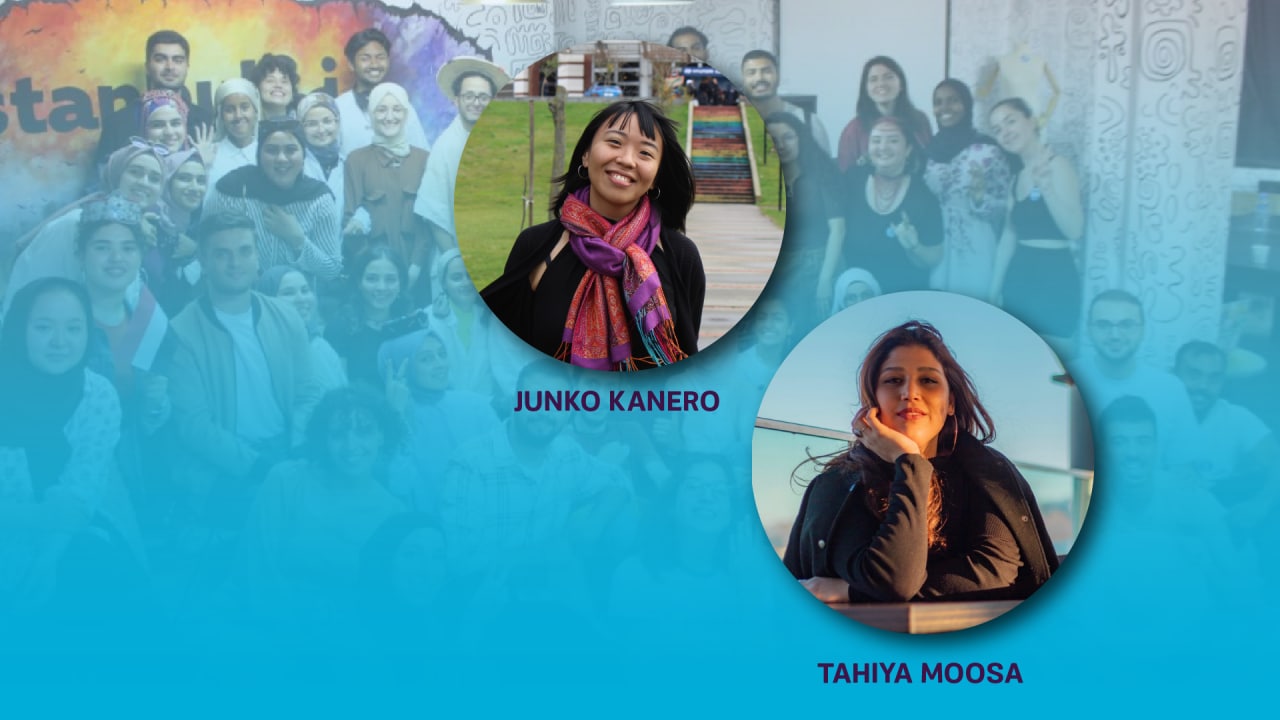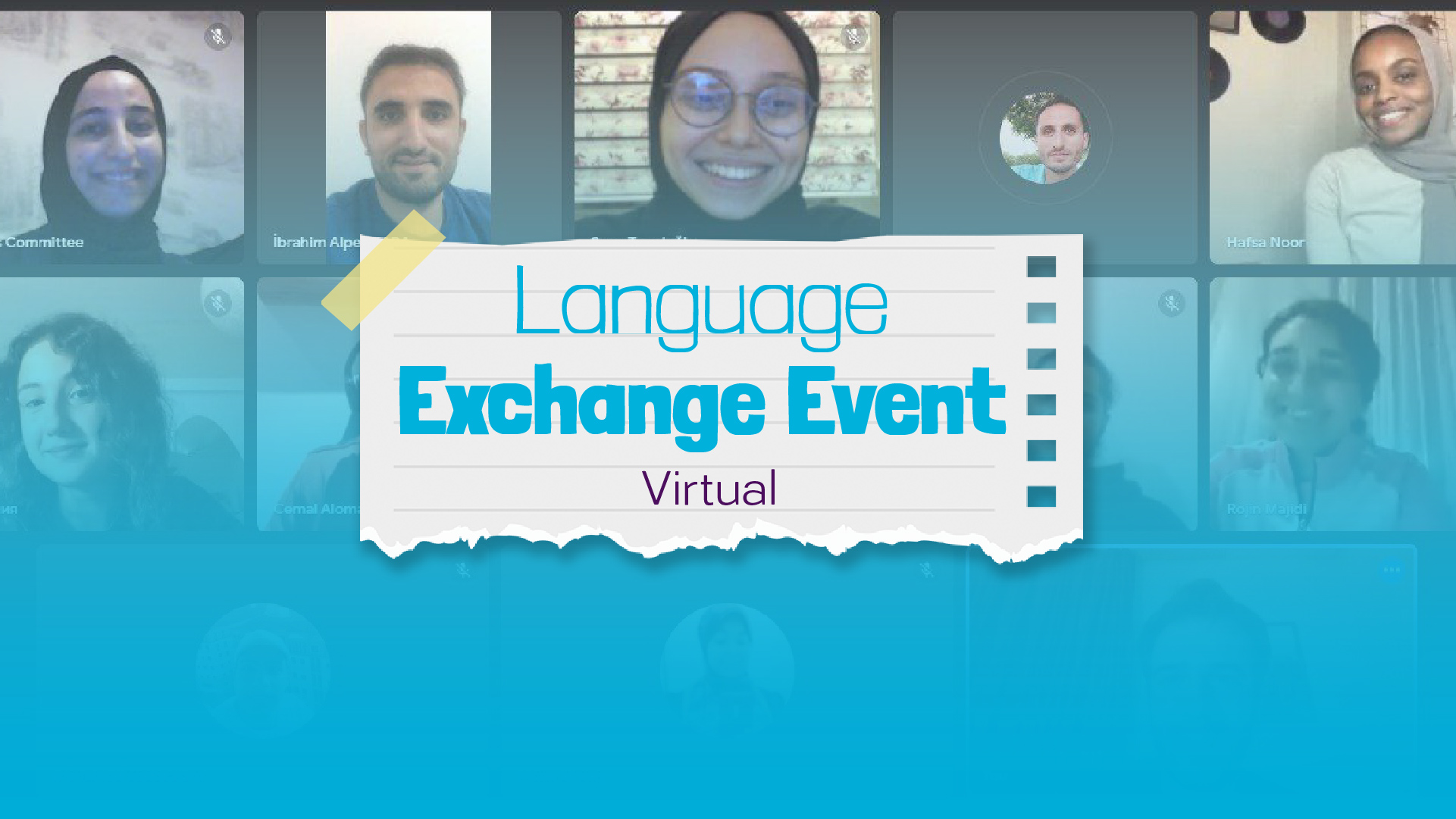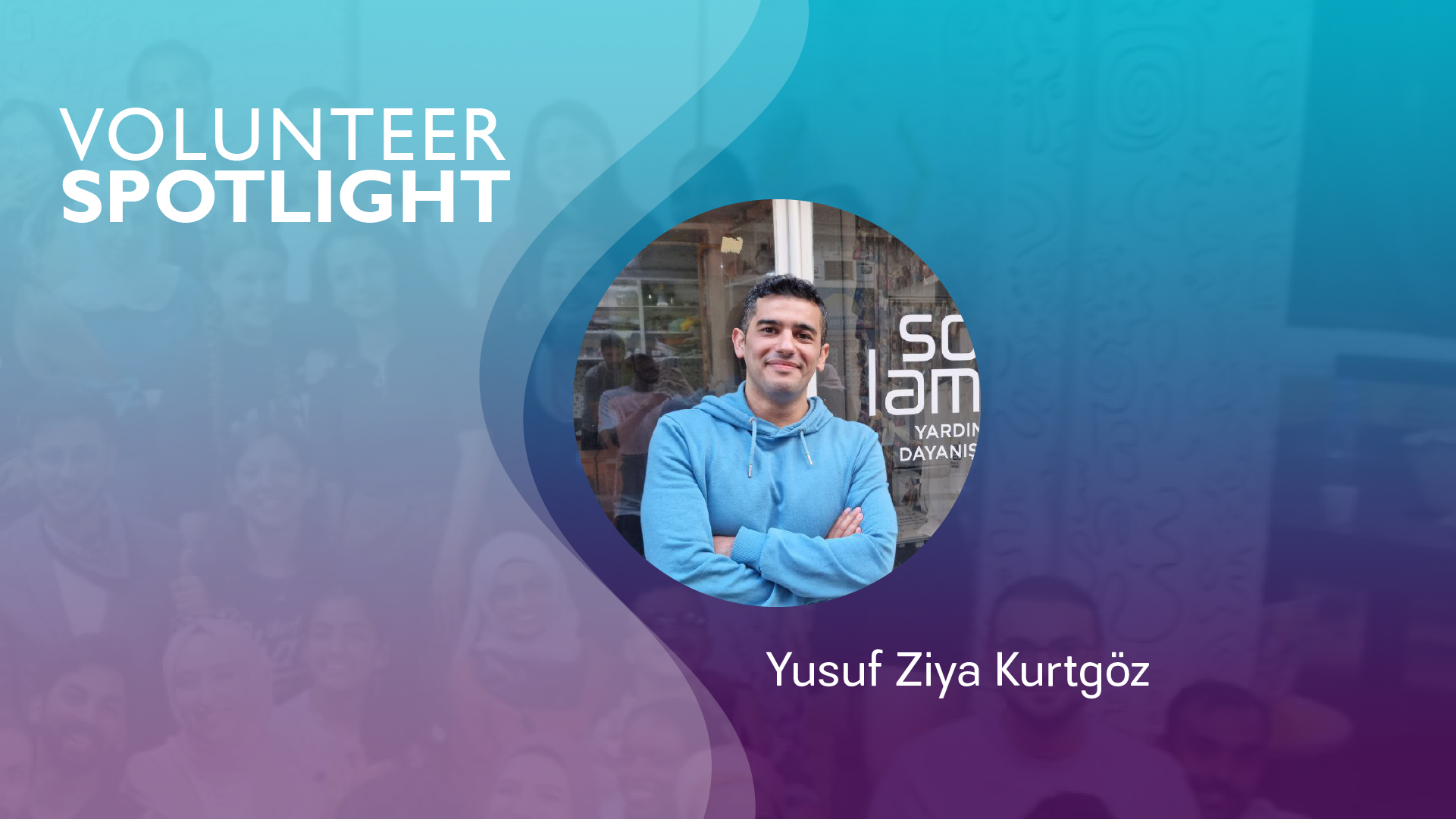Reflecting on the Past and Looking to the Future! - Interview with the Ex-Executive Coordinators, Junko and Tahiya
Istanbul&I has been around for quite some time, and throughout our history, we have had many wonderful executive coordinators (ECs) making sure the organization runs as smoothly as possible. About two terms ago, the organization tried something new! For this month’s newsletter, we decided to do an interview with them to ask about their term, how they feel about I&I today, and what their hopes for the future are. Read below for the interview:
Alright, let’s go ahead and introduce you to our audience. Who are you and what was your involvement with Istanbul&I?
Junko: Hi, I am Junko Kanero. Tahiya and I were the Co-Executive Coordinators, doing the job together about two generations ago. I have been in Istanbul&I since 2017. I've been involved non-stop with many projects. I have taken part in most of the projects we have done. And I still do volunteer with Istanbul&I every once in a while. But now I live in Tuzla, the east-end of Istanbul and it’s been a bit difficult for me to come over to events. My main job is being a psychology professor at Sabancı University in Tuzla. And I do research in language, robots, and a bunch of other things.
Tahiya: My name is Tahiya Moosa, I was the EC with Junko. I work in research in South Africa. I have been part of Istanbul&I since not long before Junko. 2016, not much longer. I wasn't active for a few years since I was doing my Master's. I've been back since 2018, and now getting back in Istanbul. And I'm trying to get back in and involved, but yeah, that's me.
You were Co-ECs and Istanbul&I has not had that model since. What was your experience being a team of executive coordinators? Where did you start and where did you end up during your term?
Tahiya: I think that we started with the thought of keeping transparency and a balance of power, so we decided to have two ECs. We split it into internal and external work. Junko managed the internal, I managed the external. And we kind of found a sweet balance. Where we were both able to do our roles and come together to make decisions. Which I think was quite successful.
Junko: I agree with Tahiya. For us, it worked out pretty well. During the recent election, someone asked me if I recommended co-leadership. My answer was that it did work for me and Tahiya, but as a general structure, it might be a bit difficult. You have to know each other very well and you should be willing to respect the division of labor. When Tahiya and I started, we focused on rebuilding the organizational structure, engaging volunteers, and establishing more connections with local communities. There were many things we needed to do. Tahiya and I were familiar with the older version of Istanbul&I, and we could re-engage a lot of old volunteers. We signed up new volunteers as well, of course, with the help of the wonderful board we had. The organizational structure we have now was built basically when the two of us were the ECs. The ending of it was when the pandemic started. We couldn't do any in-person events in the beginning. We continued our online events and everything but then it was difficult to continue that way. Eventually, we found someone who was willing to take over during that period. So we said OK, we can focus on transitioning and making sure new people are familiar with everything. But otherwise, we just passed the baton to a new group of people at the end.
You are pretty familiar with the structure of Istanbul&I which is in essence a youth-led NGO. What do you think are the strengths and weaknesses of organizations like this? Given your experience running one for a certain period.
Junko: The strength for me, a volunteer and a previous EC, is how open this organization is. When I first came here (Turkey), I wanted to do lots of volunteering and humanitarian work in general, outside of my work. But, I couldn't find a place to do it just on weekends. I also didn't know Turkish. So, there were so many constraints. But Istanbul&I was willing to accommodate. I tried it out and saw that we were building a nice community.
The weakness though is the flip side of the coin. Istanbul&I is open to anyone and people can volunteer on their own time. Motivating them, making sure everyone is volunteering, and keeping their spirits up has always been difficult. Even before us, and of course, after us too. While I really like how horizontal and open Istanbul&I is, it is as difficult to make it sustainable.
Tahiya: I agree completely. I think one of the most important things about Istanbul&I is the community. I had the same thing. I came back to Istanbul after teaching English and I wanted to volunteer. And I couldn't find anywhere that A, was willing to just let me give my time but B, was also somewhere I could be with people like myself. Young people, people who want to make change. It's not every day that you get to have a community of people who have these shared values to help people or impact the lives of people. To find a group of people that not only were working/studying or whatever, but were still willing to give their time, that was not only such a comforting feeling but it was also very motivating. And I think that's where the strength of Istanbul&I comes from. It's a like-minded community of people that would share goals.
Because of the wonderful structure that we have, which as Junko said is horizontal, and really inclusive. It does make it hard to "sell" when you're trying to get grants and funding, because of the uniqueness of the structure. So I would say in terms of the pitfalls, it would be maintaining that financial stability, and making sure the organization is sustainable itself.
What do you think about the vision/mission or values Istanbul&I represents now?
Tahiya: One of the unique things about Istanbul&I is its ability to adapt. We wanted to pass it on to a new group of people. Run with it. A new group of people decide what the direction is. As long as the essence of what we were doing stayed the same, I think its ability to adapt is pretty incredible. So, the vision might be refined and refined again. And I think that is a good thing in many ways. The adaptability makes it pretty unique. The current board is obviously refining again, it's changing the dynamics, and it's focusing on different things. As the volunteers increase or change, that's going to evolve too. They're trying to refine the processes to make it better and stronger.
Junko: One nice thing about this organization is again that it is inclusive and open to changes. Volunteer activities change based on the current volunteers and executives. Some of the activities we used to do — I don't think we can do them right now. Just because it was relying on a few individuals who were skilled in specific things. Always, when we are asking for a sponsorship, we have to give a coherent picture to the potential funder. We do believe in what we've been doing and what we're doing right now, but it does get difficult to present ourselves as a professional organization when our activities keep changing. In terms of the details, originally Istanbul&I was about storytelling and social inclusion. And later, it was about displaced communities. It is nice that we now work with animals. Also the work we do with local Turkish people, as well as refugees and immigrant populations. I guess the big picture remains the same, but the details have been changing, which I see as mostly good.
After two years, what are the changes you've seen in Istanbul&I?
Junko: I think there are more formal positions. And it has a more company-like structure, instead of the horizontal structure we had when we were a smaller group of people. To some extent, that is inevitable to make sure people do their jobs. But, I do hope we keep the original spirit in mind. The organization has to be carefully managed though expanding is a good thing. I hope more people can join the organization. So, I would say we'll see how it goes. So far I can see a great effort and I appreciate it very much.
Tahiya: One of the things that I think has increased, has been external collaborations. I think the current board has been pushing for external collaborations to bring on people that can help support the projects that we want to run. We had focused on that too but of course couldn't pursue it because of Covid. But trying to kind of collaborate more with external organizations in terms of starting new projects, expanding existing projects and that kind of stuff. So, I would think that's one of the things that has changed.
Junko: I do hope that things like Iftar&Community continue. Not only are they good projects, but also I think the event can help us engage alumni who are very important for networking and financial sustainibility. I do hope that some of our older events remain.
What would you like to see at Istanbul&I in the near future?
Tahiya: More volunteer programs. I think that's where we have the most connection. I think that's where it not just connects the volunteers with each other but it also connects the volunteers with our larger community. And also once you get involved in and see that community first-hand it affects you, it changes you. It almost motivates you to wanna get involved. So, I think volunteering is a good segue into all of our events. It can be a segue into social inclusion, social welfare, but I think the essence is it starts with that. That's the spark that gets everything going.
Junko: More independent projects would be also nice. Helping other organizations is great because we should have collaborations, but it would be even better to have more pure volunteering projects led by Istanbul&I. After all, this is a volunteering organization, and that's what we should empathize. It has always been difficult to do independent projects, but I want to see us running more projects ourselves.
What would you say to the new generation of volunteers?
Tahiya: Firstly, be yourself. Always be yourself. That's what the community is about. Secondly, the organization is bigger than one individual. It's about the collective and that's a goal that should always be remembered. It's about community. All equal, on the same level. That, you know, was the idea of the community when it was started. And I think that is something we need to keep in mind. Cause we're obviously stronger as a community and with that community we're then able to assist more and just be better basically.
Junko: I would say “Don't forget why you're here.” You want to make a difference and that's why you're in Istanbul&I. Of course, you want to make friends and have fun too. But, the very reason we're all here is to make our community and society a little bit better, to at least make some small contributions we are capable of making.
Thank you for your time and inspiring words.
21-09-22 Transcribed and Written by Mohammad Kachooee
21-09-22 - Proofread by Chand
16-10-22 - Edits added by Mohammad Kachooee



